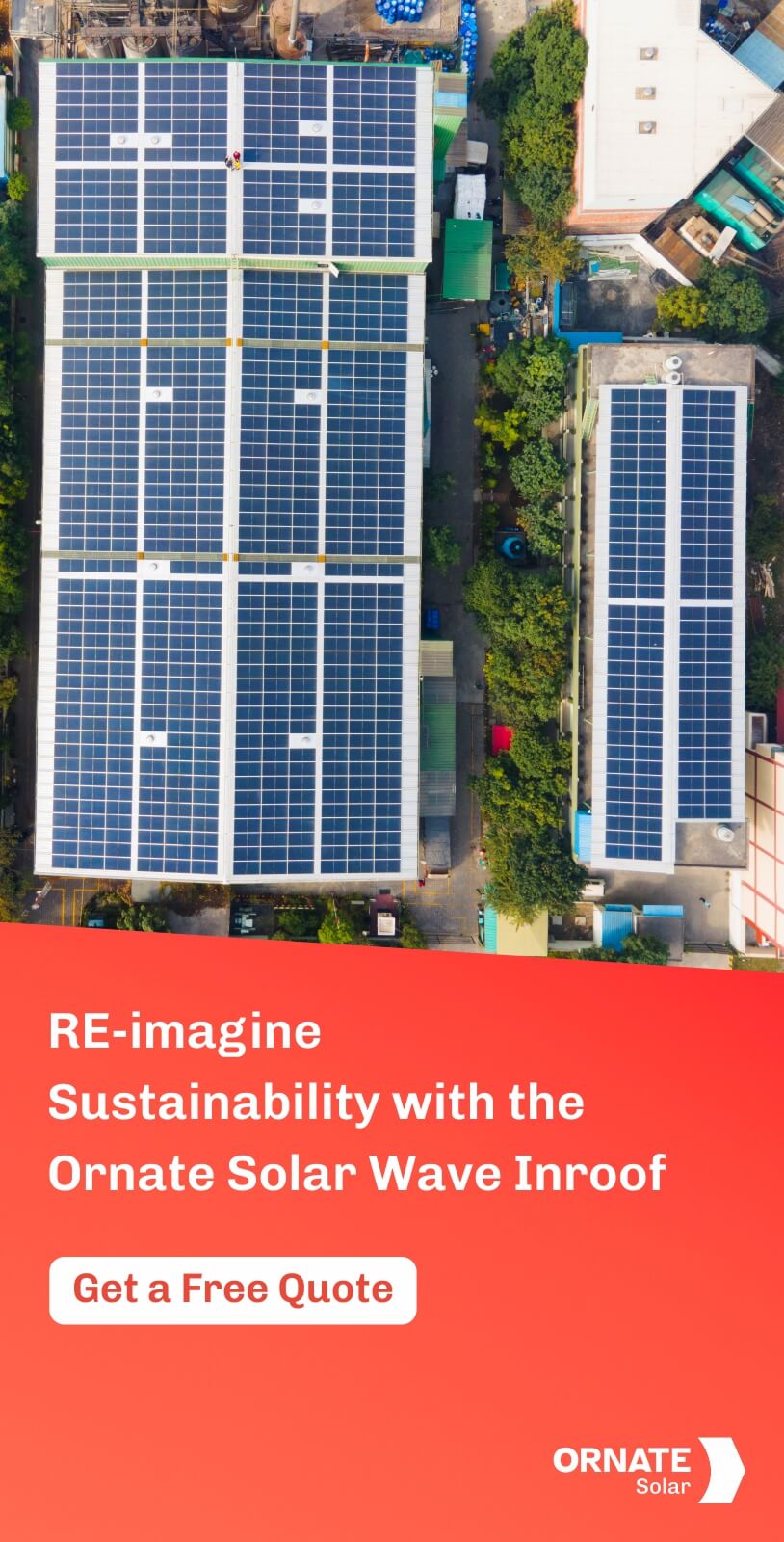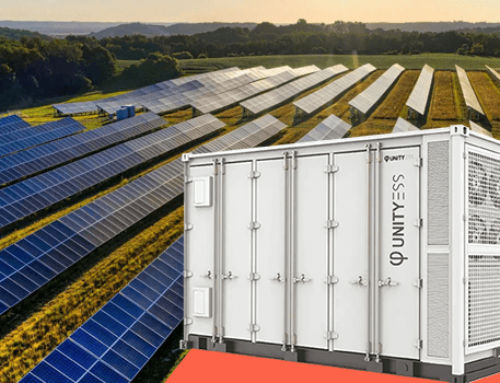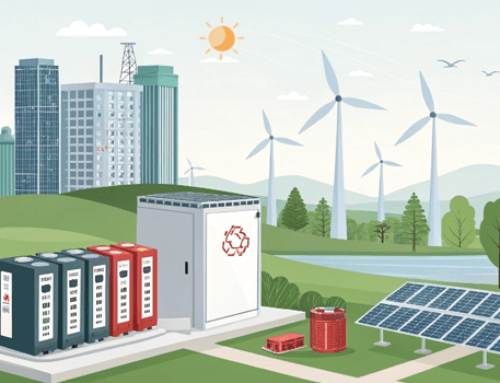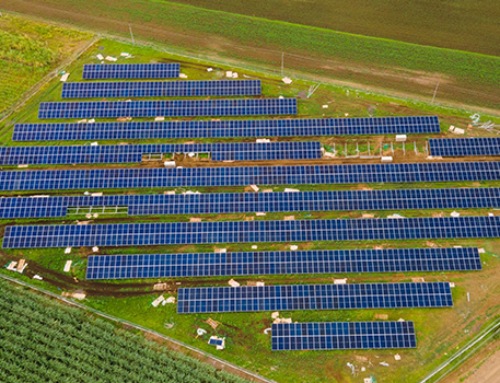

Solar energy is one of the most affordable and sustainable power sources today. To help farmers harness its benefits, the Indian government launched the PM-KUSUM Yojana in 2019, aiming to reduce reliance on diesel pumps, lower electricity costs, and promote solar adoption in agriculture.
In this blog, we’ll break down everything you need to know about the scheme, solar water pumps, and the incentives available to consumers.
What is PM KUSUM Yojana?
PM-KUSUM (Pradhan Mantri Kisan Urja Suraksha evam Utthan Mahabhiyan) was introduced by the Ministry of New and Renewable Energy (MNRE) in 2019.
In India, the PM KUSUM scheme helps farmers install solar pumps and solar power plants. The 3 components of the scheme are as follows:
Component-A: Set up 10,000 MW of decentralized grid-connected renewable energy power plants on barren land. Power plants with a capacity of 500 kW to 2 MW will be installed by farmers, cooperatives, panchayats, and other organizations.
Component-B: Install 17.50 lakh stand-alone solar agriculture pumps. Farmers in off-grid areas without access to the grid will receive support to replace existing diesel pumps with solar pumps up to 7.5 HP capacity.
Component-C: Solarize 10 lakh grid-connected agriculture pumps. Farmers with grid-connected pumps will receive support to convert their pumps to solar power. Solar energy generated will be used for irrigation, and excess power will be sold to DISCOMs at a pre-fixed tariff.
In 2023, the MNRE announced that the PM Kusum Yojana would be extended until March 31, 2026, due to delays in implementation caused by the COVID-19 pandemic. The central government has allocated a budget of ₹500 crore for the scheme, and as of 2023, over 2.45 lakh farmers have benefited from it.
Several states, including Uttar Pradesh, Haryana, and Kerala, have also set their own targets for increasing solar energy in agriculture. For instance, the Uttar Pradesh government plans to install 30,000 solar-powered irrigation pumps in the state under the scheme.
Component A of PM-KUSUM Yojana
Component A of the PM-KUSUM scheme enables farmers to earn additional income by selling solar power to the state grid. Here’s how it works:
- Farmers can set up small solar plants (up to 2 MW capacity) on barren, fallow, marshy, pasture, or cultivable land.
- The solar plant can be self-installed, or the land can be leased to a developer who will set up and operate the system.
- Financing support is available, allowing farmers to secure bank loans at competitive rates and soft terms.
- The generated solar power is sold to DISCOMs, providing farmers with a steady income stream.
- As per government data, farmers can earn:
- ₹25,000 per acre per year if the plant is installed by a developer.
- Up to ₹65,000 per acre per year if they install and operate the plant themselves.
This component helps farmers utilize unproductive land while contributing to India’s clean energy transition.
Agri-PV: Combining Agriculture and Solar Energy
Farmers who want to benefit from the PM-KUSUM Yojana but don’t have the unused land for solar panels can opt for Agrivoltaics (Agri-PV)—a system that allows crop cultivation alongside solar power generation.
In Agri-PV, solar panels are installed above or around crops, offering several benefits:
- Shade protection: Panels reduce crop dehydration while crops help cool the panels, improving efficiency.
- Water conservation: Water used for panel cleaning drips down to irrigate crops, reducing wastage.
- Dual land use: The space can also be used for animal husbandry or other agricultural activities.
Types of Agri-PV Systems
Farmers can choose from three main Agri-PV setups:
- Overhead Stilted APV Plant – Solar panels are mounted on elevated structures (at least 2.1m high), allowing unrestricted farming underneath.
- Inter-row Spacing APV Plant – Panels are tilted with wide gaps between rows, making room for large farming equipment.
- Interspace Vertical APV Plant – Panels are installed vertically on the edges of crop fields, maximizing space for farming.
What are Solar Water Pumps?
Solar water pumps are environmentally friendly devices that harness the power of the sun to pump water. These pumps have become increasingly popular in regions where access to electricity supply is limited or unreliable.
By utilizing solar energy, they provide a cost-effective and sustainable solution for agricultural needs.
The main advantage of solar water pumps is their ability to operate without diesel fuel. They consist of solar panels that capture sunlight and convert it into electricity to power the pump. This saves on energy expenses and minimizes carbon emissions and reliance on fossil fuels.
Solar water pumps can be installed in remote areas, enabling farmers to irrigate their fields, livestock to access clean water, and communities to access safe drinking water.
Additionally, solar water pumps offer scalability and versatility. They come in various sizes and capacities to suit different water requirements. Moreover, they require minimal maintenance and have a long lifespan, making them a reliable and durable solution for water pumping.
Types of Solar Water Pumps
Solar Submersible Pump
When water needs to be lifted from deep underground, solar submersible pumps are used. This pump lifts water from depths of over 15 meters. Due to the high-water depth in most locations of India, solar submersible water pumps are the most preferred pumps.
Solar Surface Pump
Surface pumps are water pumps that are tiny in size but have a lot of power. They’re utilized to raise water that’s only a few inches deep. A solar surface pump is recommended if the depth of water is 15 meters or less. It can elevate water to or above ground level with ease. Streams, storage tanks, shallow wells, and ponds are all sites where this sort of pump can be found.
Financial Assistance for Installing Solar Pumps and How to Apply
- Farmers will only be responsible for 10% of the total cost under the PM KUSUM Yojana.
- A 30% subsidy will be provided by the Central government and another 30% by the state government.
- Moreover, the state government will provide the remaining 30% as a loan to the farmers.
Each state has its own agency and application process for the PM Kusum Yojana. For example, farmers in Uttar Pradesh need to register online and submit the required documents to avail the benefits.
To check the state wise registration process, farmers can visit the official website https://pmkusum.mnre.gov.in/ .
Read More:
About Ornate Solar
Ornate Solar is India’s leading solar company with 10 years of experience. By partnering with the best-in-class global solar brands, we bring the most reputable solar panels, inverters, and solar accessories to you and make your shift to solar cost-effective and easy.
Ornate Solar is also a trusted BESS manufacturer company in India. We have developed UnityESS, an advanced energy storage solution to provide reliable power and energy independence. We have also developed India’s first Integrated Solar Rooftop system, which turns solar panels into the roof and eliminates the need for sheet roofing.
We deliver across India.
For more information, please give us a call at 1800 2026 252.














Muje jrurat h is yojana ki
Thanks
how can we convert HP to kilo-watt? for solar plant calculations